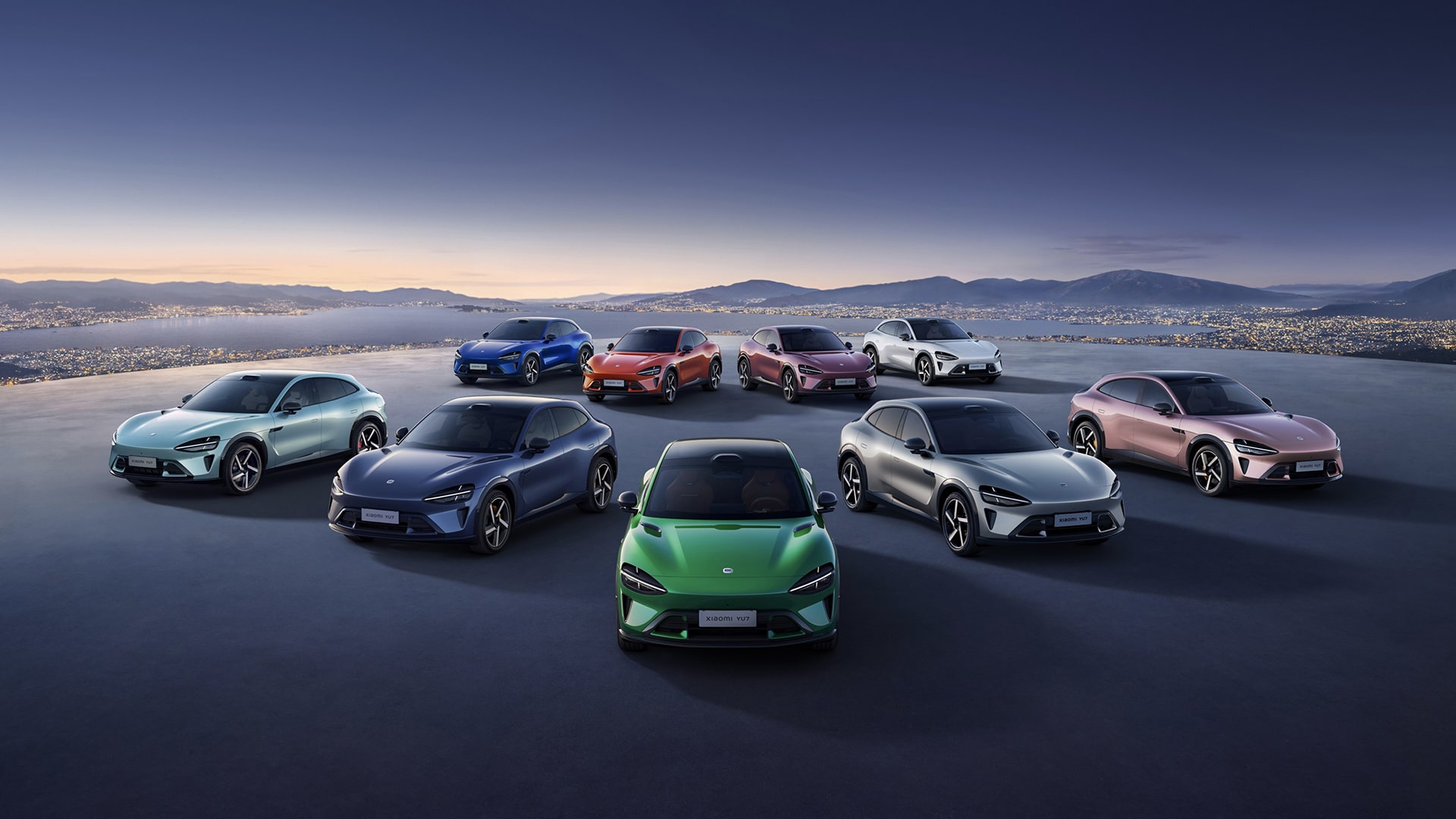As Chinese manufacturer Xiaomi prepares to expand capacity for electric vehicles, the company is responding to the overwhelming demand for its EVs by employing 1,000 robots at its plant.
Xiaomi’s sole EV factory sits on a 720,000-square-meter site in Beijing that also contains a dealership, a delivery center and a test course.
The factory itself is a rectangular block of a building where pressing, casting, bodywork, painting, battery packaging, and assembly take place. During a recent visit to the plant, robots were seen playing key roles in each of the six processes.
Xiaomi takes particular pride in its gigacasting, a form of aluminum die-casting that produces large body parts. One gigacast module to be placed atop the rear wheels would have required 72 parts to be welded together at 840 contact points using conventional methods. Die-casting a single large piece instead cuts production time by almost half.
“Our company and Tesla are the only two in China that have gigacast presses of this class,” a Xiaomi factory guide said.
A giant white gigacast press took center stage at the plant. The parts churned out by the machine were continuously conveyed to three-tiered shelves several meters above the ground nearby.
The parts are inspected in automated fashion using high-performance lidar sensors. Artificial intelligence helps find defects with nearly 100% accuracy, Xiaomi said.
Automated guided vehicles (AGVs) transport components from the giant press to the inspection processes. Robotic arms of all shapes and sizes gyrate in repetition to carry out their given tasks, giving the impression that automatons have truly taken over.
The auto body frames are assembled without human help. Doors were installed in a minute. The areas witnessed during the tour felt orderly and clinical, in stark contrast to a traditional assembly plant.
No photographs were allowed during the visit inside Xiaomi’s plant. The tour did not provide a glimpse of finished vehicles leaving the production line.
But unlike a traditional assembly line, where parts are pieced together on a giant conveyor belt, AGVs bring finished components to robots that construct the vehicles. The operating process resembles that of a smartphone manufacturer, Xiaomi’s original stock in trade.
At the factory, one vehicle comes off the line every 76 seconds, equating to daily production volume of around 1,000 units. The plant has operated at full capacity in two-shift rotations since June 2024. One thousand people work each shift.
Xiaomi has nearly completed a second EV plant adjacent to the first factory, and the company plans a third plant just east of the complex. On June 19, Beijing’s municipal government said Xiaomi bought around 500,000 square meters for about RMB 640 million (USD 89.6 million).
Sales have surged for Xiaomi’s first EV, the SU7, since it debuted in March 2024. The car boasts a sporty exterior and connects seamlessly with Xiaomi’s smartphones.
Anyone wishing to buy a Xiaomi EV needs to wait more than 30 weeks from the initial order to delivery, according to Chinese media.
Xiaomi set as its benchmark Tesla’s Model 3 sedan. The SU7 is priced at RMB 215,900 (USD 30,226) while the Model 3 starts at RMB 235,500 (USD 32,970) in China. The SU7 has sold 256,000 units during the past year, Chinese car information platform Dongchedi reports, compared to roughly 200,000 units for the Model 3.
Xiaomi chairman and CEO Lei Jun said on June 26 that Xiaomi’s new YU7 SUV will start at RMB 253,500 (USD 35,490), less expensive than the starting price of RMB 263,500 (USD 36,890) for Tesla’s Model Y SUV.
During the launch, Lei touted the YU7’s range and power compared with the Model Y. Though Tesla is ahead in such areas as driver assistance functions, the YU7 has higher overall specs and a far better customer experience, Lei maintained.
Xiaomi said 200,000 preorders were made in the first three minutes of the YU7 going on sale at 10 p.m. on June 26. China’s Tianfeng Securities wrote in a June 22 report that the model will accelerate Xiaomi’s growth. The YU7 has the potential to be a hit that far exceeds market expectations, according to the report.
Tesla’s flagship Model Y sold about 440,000 units in the past year, according to Dongchedi. Xiaomi’s EV factory has already started production on the YU7, and vehicles waiting for shipment sit in storage spaces.
This article first appeared on Nikkei Asia. It has been republished here as part of 36Kr’s ongoing partnership with Nikkei.

